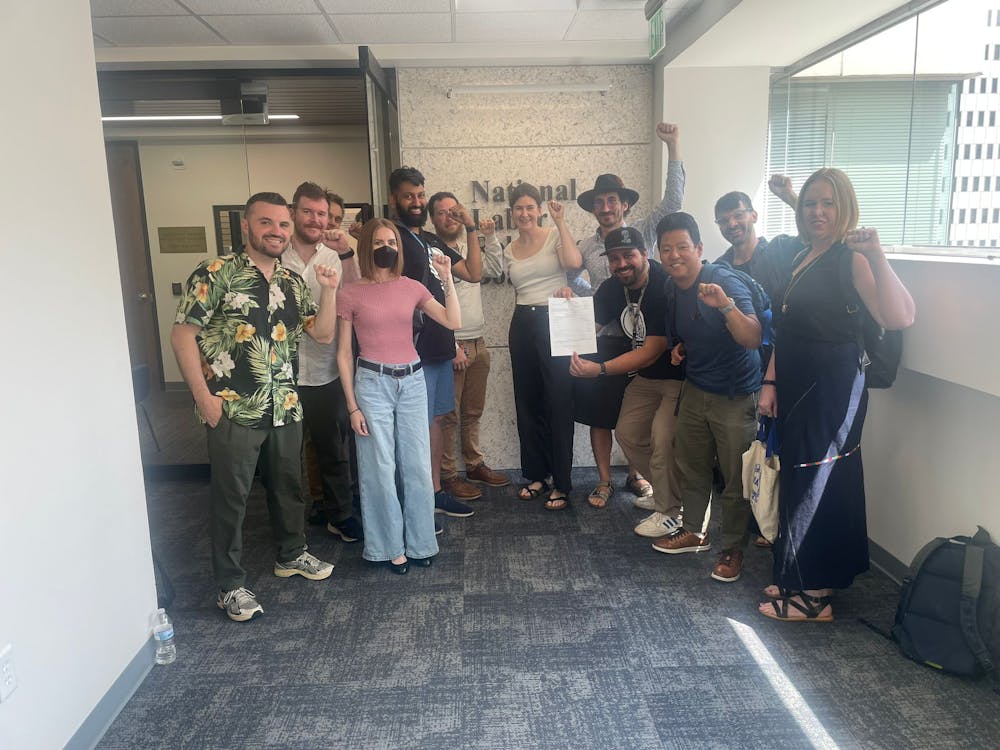Paul Ferraro, Bloomberg Distinguished Professor of Business and Engineering, gave a talk on his ongoing research about the effects of human behavior on anti-poverty programs and the environment, namely deforestation. Over 30 people attended the lecture, which took place on Thursday, March 30 at Olin Hall.
According to Ferraro, many scientists are working with local governments to design programs that raise the standard of living while limiting harmful effects on the environment. He believes that human behavior plays a key role in how social policy impacts the environment.
“I’m interested in how humans make decisions and how we incorporate those insights to make policy better. One of the biggest problems in the environmental arena is that engineers and scientists are the ones driving policy,” Ferraro said. “But environmental policy is about behavior, too. Ignoring human behavior is a big blind spot when it comes to program design.”
Ferraro emphasized that designing programs to simultaneously alleviate poverty and prevent deforestation is difficult. The complexity of human behavior makes collecting data on doing both challenging, but Ferraro thinks that more data can help refine the models created by policymakers. He hopes there will be more studies that generate useful data about social programs.
“I do a lot of intervention with national parks and land use regulation — trying to elucidate the mechanisms, both environmental and human, that are propagated through laws, policies, and if they are good enough for the environmental or not,” he said. “We have a lot of data related to the Earth and biophysical processes, but we have far less information about where to engage with those trends affecting the biosphere.”
In one randomized control trial he conducted in Central America, Ferraro directed workshops that taught local people about climate change adaptation when rising sea levels threaten the drinking water. The villages collaborated with engineers to devise both technological and non-technological solutions to help them prepare in the event that they ran out of drinking water.
“Engineers like to solve problems with technology, but a lot of technology they have no idea how to actually use,” he said.
It is also commonly believed that economic development negatively impacts the environment, but Ferraro says that the relationship is not as strong as once believed.
“If you protect the environment, do you exacerbate poverty or vice-versa? And there’s not a lot of good evidence on this,” he said. “There’s a lot of raging debate, case studies, anecdotal theory, but not a lot of good data.”
He stressed that, depending on the way economic development is achieved, the impact on the environment differs.
“Economic growth depends on how it’s done. You need to study mechanisms. Any particular shock, whatever impact it’s going to have, is dependent on the mechanisms that are propagated through the method,” he said. “Raining cash down on poor people is likely going to have a different environmental impact than if I educate them or give them job training.”
In a cash transfer program in Mexico that loaned farmers money, deforestation increased due to an increased demand for meat. Because more grazing land for cattle was required to meet this demand, trees were cut down.
Ferraro explained that anti-poverty programs can also indirectly contribute to deforestation, as in a conditional cash transfer program in Indonesia.
“[Indonesia has] seen a lot of deforestation... These are poor people. They don’t have a lot of resources in agriculture, and they don’t buy a lot of products to consume,” he said. “So you’ve got indirect effects from indirect demand for products — demand for forest as they want to consume more things... They can cut their own rainforest because they couldn’t do that before.”
However, he stressed that the deforestation in Mexico and Indonesia cannot be generalized to other places with different economies. If designed to reduce harmful land use change, anti-poverty programs can actually slow down deforestation. Ferraro said that the effect is small but significant — about one tenth of a standard deviation.
According to these results, Ferraro noted that other non-environmental policies can have a similar impact as programs that intentionally try to reduce deforestation. Both generally have a small effect, he said. For example, national park systems do very little to reduce deforestation. This is because national parks are located on low-value land, a behavior called adverse selection.
“If you think about national park systems, do they get placed in the most valuable agricultural land or timber or mining? They get placed in residual plots and not a lot of people want it. They are placed not because of foresight but because it’s the last place anyone would want to do agriculture,” he said. “They call this high and far and rockiest. The politically easiest place to protect is the least valued or least threatened.”
Junior Shuo Yu Lai, an exchange student from Malaysia, attended the lecture because he was interested in hearing Ferraro speak about Indonesia. While Ferraro did not talk about Indonesia as much as Lai hoped, Lai thought he covered statistical concepts very thoroughly.
“I’m kind of interested in understanding how America studies other countries. I’m concerned about environmental issues as well, so this talk about the relationship between environment and poverty interests me,” he said. “[Ferraro] was quite honest about elements of [his] project, because some governments took money from the project and took conservation projects in areas that no one would take anyways... Sometimes there’s some other agenda that they want to fulfill.”
Xinting Yu, a graduate student in the Earth and Planetary Sciences department, thought that Ferraro’s perspective that sociology, statistics and human behavior can help advance environmental science was unique.
“How policy could affect people’s behavior and how behavior can affect the environment — that’s something I never thought of,” she said. “The results he showed were kind of interesting. It’s definitely a new area that needs to be investigated more.”




